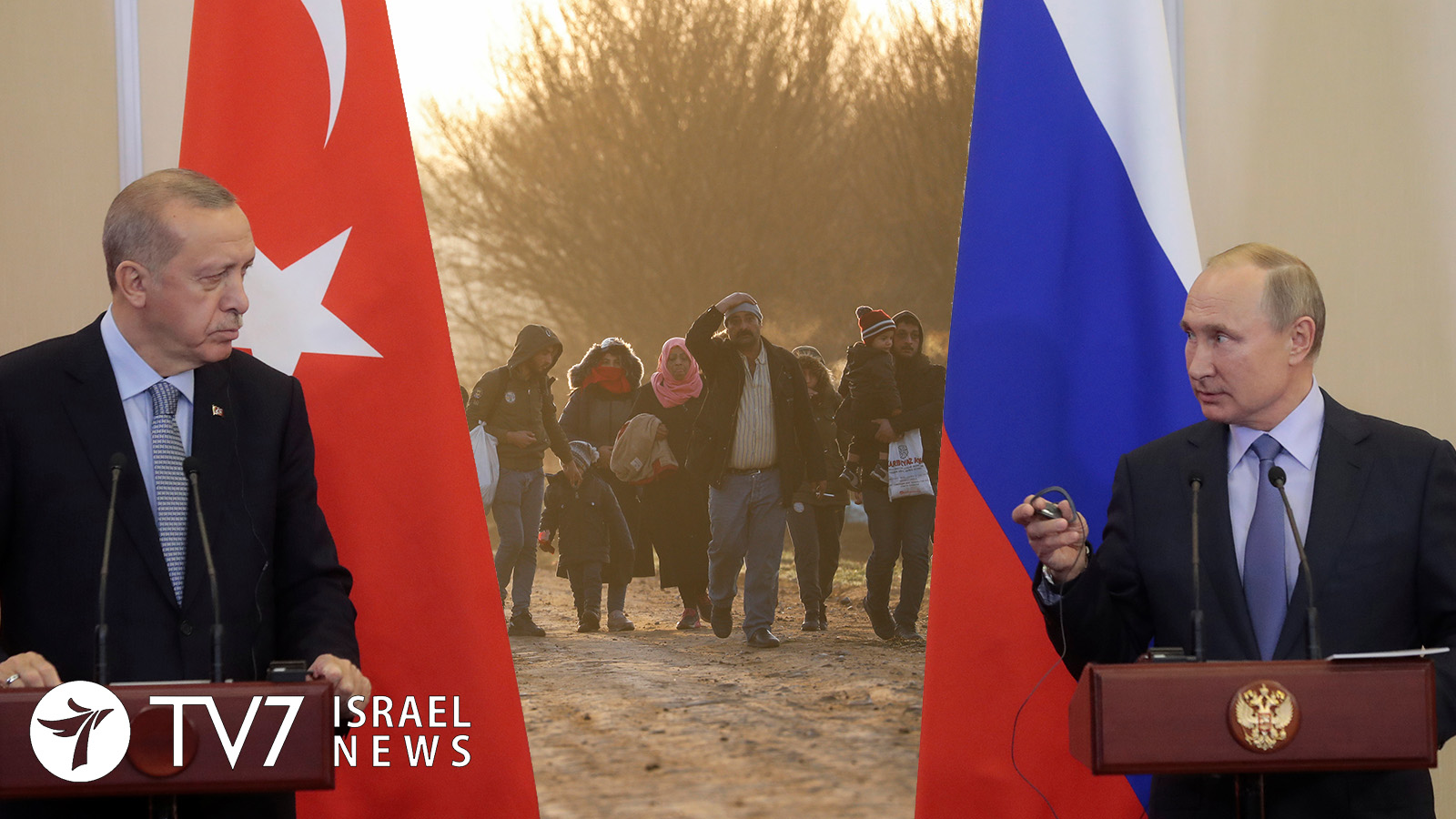Thousands of asylum seekers have been continuing to wait at the Turkish-Greek border for more than two weeks now, in hope of soon making their way into Europe. Nearly 2,500 have been wounded by measures used by Greek border guards to keep them from infiltrating the crossings, and several people killed. Greek forces have reportedly used tear gas, water cannon, gas bombs and thrown rocks to push-back the crowds. asylum seekers.
Fire brigade officials on the Greek island of Lesbos said a young girl, aged between six and seven, was found dead in a fire that ignited in the overcrowded Moria migrant camp on Monday (March 16). The fire burned through two containers used as living quarters by people as well as some tents in the camp, which was built to accommodate less than 3,000 people but is now housing about 19,400 living in crowded and filthy conditions. The cause of the blaze was not immediately clear, according to a spokesperson.
Protests have erupted by both migrants and the locals over the conditions at the camp, where accidents have taken place in the past. Locals want it shut down. The government has been scrambling in attempts to move the refugees to the mainland. Lesbos was on the front-line of a massive movement of refugees and migrants to Europe in 2015 and 2016.
There has been a recent upsurge in arrivals after Turkey announced on 28 February that it would no longer contain the large numbers of migrants it hosts because of an anticipated surge of displaced persons from Syria, nor stop trying to block asylum seekers from reaching the Greek border by land. Turkish President Recep Tayyip Erdogan accused the European Union of failing to uphold its half of the 2016 migrant deal, while warning of a million more refugees poised to flood his country from across the border in Idlib, Syria. With 3.7 million Syrian migrants in Turkey already, more than any other country in the world, Ankara says it cannot absorb another refugee wave.
Meanwhile, witnesses and Russian news agencies are reporting that Russia and Turkey had to cut short their first joint patrol in Idlib on Sunday (March 15) when they were confronted by hundreds of rebels and civilians opposed to the recent ceasefire agreement. The two countries military patrol was the result of a 5 March truce between Moscow and Ankara, which back opposing sides in Syria’s nine-year war. The ceasefire has largely held since that time.
Under the deal, which halted hostilities after an escalation of violence that displaced the nearly-one million people to whom Erdogan was referring, Turkish and Russian forces are to establish a security corridor on either side of the M4, in addition to the joint patrols.
Protesters, some waving Syrian National Army flags, climbed on top of Turkish tanks or physically blocked their path. Photos posted by the Syrian Observatory for Human Rights showed demonstrators lighting fires in the street, burning tires and forming human chains. Many said they rejected the presence of Russian forces and what they fear was an agreement that did not guarantee their re-settlement after being pushed out by violence.
The Kremlin has praised its accord with Turkey. At the start of the week, the Director of the Information and Press Department of the Russian Federation’s Ministry of Foreign Affairs, Maria Vladimirovna Zakharova, said it had been “possible to overcome the dangerous surge of tension” in Idlib ”thanks to the agreement reached during the meeting between the President of Russia and the President of Turkey on March 5 in Moscow,” which has “facilitated a noticeable stabilization of the situation.”
Zakharova went on to cite alleged Israeli strikes against Iranian arms depots in Syria as a “cause for concern.” Calling “Israel’s continued practice of unilateral air strikes on Syrian territory” a “violation of sovereignty of neighboring Arab countries,” the Russian Foreign Ministry official claimed an alleged-IDF attack on 5 March “from Lebanese airspace” undermines “regional security and contributes to increased tensions.”
Israel’s defense establishment has neither confirmed nor denied involvement in the 5 March attack, although responsibility has been claimed for many previous strikes. Israeli Prime Minister Benjamin Netanyahu has reiterated on innumerable occasions that Iran will never be permitted to establish a permanent presence in either of the neighboring states of Lebanon or Syria. The Israeli military is believed to have launched hundreds of airstrikes on convoys transporting weapons from Iran to Islamic Revolutionary Guards Corps fighters in both Arab countries; as well as to Tehran’s proxy, the Hezbollah terror group.
